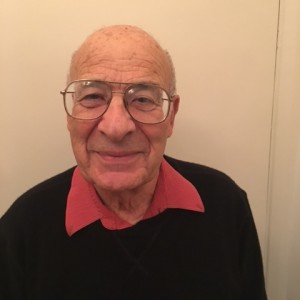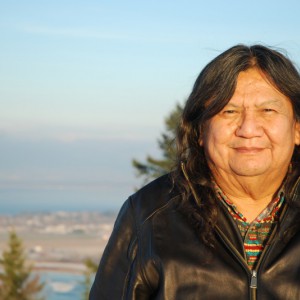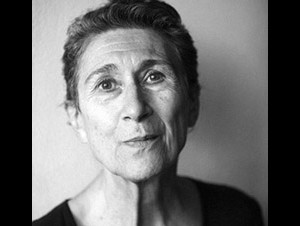-

Harry Glasbeek
Harry Glasbeek is professor emeritus and Senior Scholar of Osgoode Hall Law School, York University. He has taught in both Australia and Canada and has written 140 articles and 12 books, including Between the Lines titles Wealth by Stealth: Corporate Crime, Corporate Law, and the Perversion of Democracy, Class Privilege: How Law Shelters Shareholders and Coddles Capitalism, and Capitalism: A Crime Story. He lives in Toronto, Ontario.
-

Arthur Manuel
Arthur Manuel fought for decades for Indigenous land and human rights in Canada and internationally. He participated in the United Nations Permanent Forum on Indigenous Issues from its inception in 2002 and served as spokesperson for the Indigenous Network on Economies and Trade (INET) from 2003 to 2016. Working through INET, Manuel succeeded in having the struggle for Aboriginal title and treaty rights injected into international financial institutions, setting important precedents for Aboriginal title and rights in Canada. Manuel was a spokesperson for the Defenders of the Land.
-

Gabriel Allahdua
Originally from St. Lucia, Gabriel Allahdua worked as a migrant farm worker in the Seasonal Agricultural Worker Program for four years, from 2012 to 2015, before leaving the program to seek permanent residency in Canada. Now a leading voice in the migrant justice movement, Allahdua is an organizer with Justicia for Migrant Workers and an outreach worker with The Neighbourhood Organization, providing services to migrant workers across southwestern Ontario. He lives in Toronto with his two adult children and his grandson.
-

Leslie Kern
Leslie Kern is the author of three books about cities, including Feminist City: A Field Guide. She is an associate professor of geography and environment and women’s and gender studies at Mount Allison University. Her research has earned a Fulbright Visiting Scholar Award, a National Housing Studies Achievement Award, and several national multi-year grants. She is also an award-winning teacher. Her writing has appeared in The Guardian, Vox, Bloomberg CityLab, and Refinery29. Leslie lives in Sackville, New Brunswick (Mi’kma’ki) with her partner and cats.
-

Louis Karoniaktajeh Hall
Louis Karoniaktajeh Hall (1918–1993) was a prolific Kanien’kehá:a painter and writer from Kahnawake, whose work continues to inspire generations of Indigenous people today. A man of all trades, Karoniaktajeh worked as a butcher, a carpenter, and a mason. Initially groomed for a life in the priesthood, Karoniaktajeh (on the edge of the sky) began his life as a devout Christian before later turning against what he saw as the fallacies of European religion, and deciding to reintegrate himself into the traditional Longhouse and help revive “the old ways.” Appointed as the Secretary of the Ganienkeh Council Fire, he became a prominent defender of Indigenous sovereignty, and was instrumental in the reconstitution of the Rotisken’rhakéhte (Mohawk Warrior Society). His distinctive artwork includes the iconic Unity Flag, which still symbolizes Indigenous pride across Turtle Island (North America). His legacy as a revivor and innovator of traditional Mohawk culture includes his works The Warrior’s Handbook (1979) and Rebuilding the Iroquois Confederacy (1980). Both these texts, which served during their time as a political and cultural call to arms for Indigenous communities across Turtle Island, were initially printed by hand and distributed in secret.
-

Steven High
Steven High is a professor of history at Concordia University in Montreal where he co-founded the Centre for Oral History and Digital Storytelling. He has authored a number of books and articles on structural and mass violence as well as deindustrialization as a political, socio-economic, and cultural process. He is currently the head of the transnational “Deindustrialization and the Politics of Our Time” (DEPOT) research project which brings together researchers, museum professionals, archivists, and trade unionists across Europe and North America.
-

Dennis Gruending
Dennis Gruending has written and edited eight books, including biographies of former Saskatchewan premier Allan Blakeney and of Emmett Hall, whose Royal Commission recommended Medicare for Canada. Gruending has worked as a print and television journalist and as a CBC Radio host. He served as a New Democratic Party MP in the 36th parliament and was his party’s critic for the environment and for international development. He later wrote speeches for former Saskatchewan Premier Lorne Calvert, and later still spent six years at the Canadian Labour Congress. He and his wife, Martha Wiebe, live in Ottawa. You can find more information at: www.dennisgruending.com.
-
Graphic History Collective
The Graphic History Collective is a group of activists, artists, writers, and researchers interested in comics, history, and social change. They produce history projects in accessible formats to help people understand the roots of contemporary social issues. Their projects show that you don’t need a cape and a pair of tights to change the world. For more, visit www.graphichistorycollective.com.
-

Silvia Federici
Silvia Federici is a feminist writer, teacher, and militant. In 1972 she was cofounder of the International Feminist Collective that launched the Wages for Housework campaign. Her books include Witches, Witch-Hunting, and Women; Caliban and the Witch; Re-enchanting the World; and Revolution at Point Zero.
-

Katsi’tsakwas Ellen Gabriel
Katsi’tsakwas Ellen Gabriel is a Kanien’kehá:ka, Wakeniáhton (Turtle Clan), artist, documentarian, and Indigenous human rights and environmental rights activist living in Kanehsatà:ke Kanien’kehá:ka Homelands.
